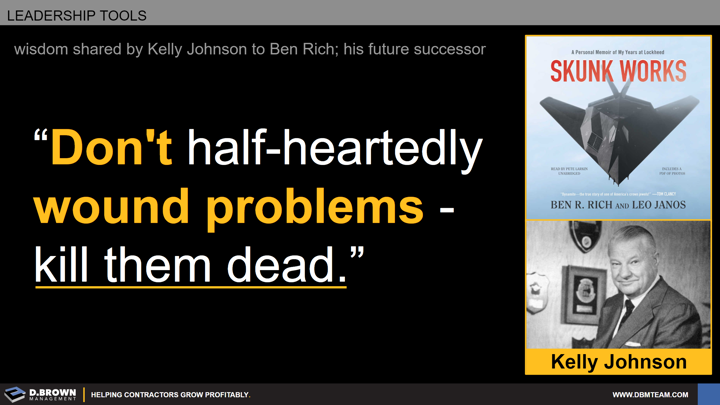"I'll teach you all you need to know about running a company in one afternoon, and we'll both go home early to boot. You don't need Harvard to teach you that it's more important to listen than to talk. You can get straight As from all your Harvard profs, but you'll never make the grade unless you're decisive: even a timely wrong decision is better than no decision. The final thing you need to know is don't half-heartedly wound problems - kill them dead. That's all there is to it."
First of all, make sure you clearly define the problem, being very specific.
“If I had an hour to solve a problem I'd spend 55 minutes thinking about the problem and five minutes thinking about solutions.”
Ask a series of 'WHY' questions until you get to the root cause.
Use the math of prioritization to P.I.C.K. the right problems to solve.
Aggressively manage every detail of the solution so it doesn't come up again.
Remember that 90% of continuous improvement is just about eliminating problems consistently, and only 10% is about innovative new ideas. The best leaders of construction companies know this.
Check out a fun and informative read about history, innovation, problem solving, and government contracting in the book Skunk Works: A Personal Memoir of My Years of Lockheed

